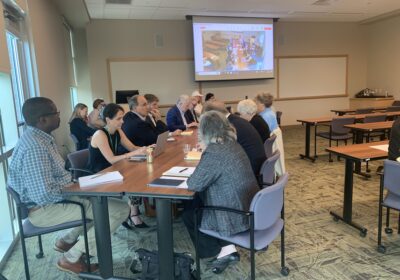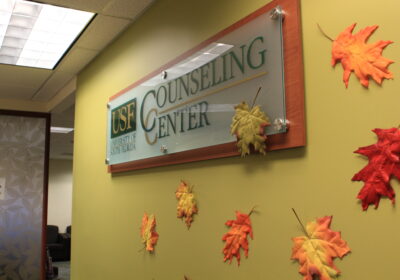Intolerance doesnt need help
Homophobia and intolerance toward homosexuals is a widespread problem in the U.S., whether it’s through people using the term “gay” to describe something they don’t like or perpetuating homosexual stereotypes in the entertainment industry.
Driving the intolerance is an array of powerful ideological and cultural forces that just don’t find homosexuality to be acceptable.
That’s why it’s understandable that some colleges offer help to gay, lesbian and transgender students dealing with this reality and why it’s unacceptable that political leaders in Texas want to either end such programs or require the creation of programs to counter-act the tolerance they create.
The Texas House voted 110-24 yesterday to pass a measure that would require schools to eliminate student centers that advocate and assist students with alternative lifestyles if the university doesn’t offer an equally funded center aimed at promoting traditional conservative values based on pro-traditional marriages and heterosexual relationships.
Centers for students with alternative lifestyles help protect their mental and physical health, and should not be tied to a school’s ability to create a center for heterosexual students that would not have as significant of an impact.
The U.S. sees constant media reports of physical and verbal abuse toward gays and lesbians, some involving suicide. Reuters, among many other news outlets, reported on the suicide of Rutgers freshman Tyler Clementi last fall after he fell victim to the shame and embarrassment associated with abuse he received because of his sexuality.
However, there’s little to no evidence or reports of heterosexual students being bullied, harassed, attacked or committing suicide solely because they are heterosexual.
It’s understandable to perhaps oppose alternative lifestyle centers as being a waste of money when students could potentially be directed to a school’s mental health centers for help with dealing with sexuality problems.
But that’s not what’s happening.
Tony McDonald, senior vice chairman of the Young Conservatives of Texas, the group that originally pushed the bill to be proposed, correctly pointed out that most college campuses are progressive-minded and more accepting of alternative lifestyles than opposed to them. He feels that’s unfair.
As this motivation illustrates, this bill is little more than a move to get the upper hand in what proponents see as a game that must be won.
Forcing schools to create centers to counteract the messages made by alternative lifestyle centers is even more unnecessary and financially wasteful than the bill’s sponsors claim the alternative centers are.
Just as questions over civil rights and discrimination toward blacks was a major issue for earlier generations in the U.S., the debate over homosexuality and the rights of gays, lesbians and transgender individuals is a topic of controversy today.
For some, a pro-heterosexuality center could seem just as unethical as a pro-racism center. The bill is just further proof that the debate over homosexuality is becoming more widespread.
However, that doesn’t mean it’s right for universities to be forced into creating unnecessary programs to counter-act programs designed to assist those dealing with contemporaries’ intolerance of something they may not be able to control.






